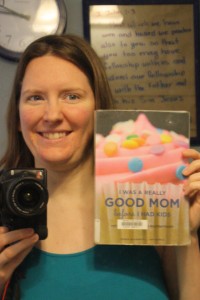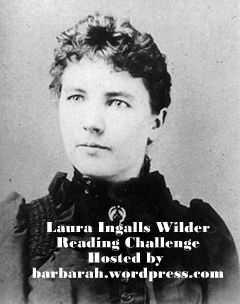Tirzah Mae’s routine (and mine by extension) is still recovering from our weeklong trip to Lincoln last month, which has meant that I’ve got a fair bit of reading and pretty much nothing else done this month.
Fiction read this month:
- Longbourn by Jo Baker
A tale of the domestic help at Longbourn, home of the Bennets (of Pride and Prejudice fame). I would have loved to have recommended this book, with it’s intriguing premise and generally engaging story (after the first few chapters). Unfortunately, the lewd language, sexual immorality, and otherwise inappropriate content sprinkled throughout makes me unable to recommend it. - 1984 by George Orwell
A fascinating dystopia read with the Reading to Know Classics Bookclub and reviewed here. - 6 picture books author last name BROWN
- 1 board book by Sandra Boynton
Nonfiction read this month:
Books about building a home:
- The Complete Guide to Building Your Home for Less by Michael Conroy
- What not to Build by Sandra Edelman, Judy Gaman, and Robby Reid
- Old-House Dictionary by Steven J. Phillips
- 3 House Plan Books
Other nonfiction:
- Annable’s Treasury of Literary Teasers by H.D. Annable
A volume full of question-and-answer-style literary trivia. I love that the answers to questions were on the very next page (questions on page 1, answers on page 2 so you flipped just one page to get the answers). I hated that I felt like an absolute literary dunce trying to answer the questions. - I was a Really Good Mom before I had Kids by Trisha Ashworth and Amy Nobile
A good book about loving motherhood as much as you love your children. I reviewed it in greater detail earlier this month. - She is Mine by Stephanie Fast
A gripping autobiography of the child of a Korean woman and an American serviceman, abandoned early in life and forced to fend for herself. I definitely recommend it (and will be reviewing it more fully soon.) - The Layman’s Bible Commentary: Micah, Nahum, Habakkuk, Zephaniah, Haggai, Zechariah, Malachi by James H. Gailey, Jr.
Having had one good experience with The Layman’s Bible Commentary, I keep checking out volume after volume to use in conjunction with my personal Bible reading. Unfortunately, this volume goes on the list with others as one in which the author undermines the inspiration of Scripture by presuming all sorts of cobbled together edits of Scripture to produce the finished work, despite the clear reading of the text indicating that, well, these are the words of a specific prophet. Disappointing. - Merry Christmas, America! by Bruce Littlefield
Photos of extravagent Christmas light displays across America – along with stories from the people who create the displays (mostly private homeowners.) A lot of the displays are too gaudy for my taste, but they’re always interesting, as are the stories behind them. - Kansas Impressions by Steve Mulligan and Michael Snell
As a lifelong resident of the Great Plains, I’ve always despised those who dismiss Nebraska or Kansas with a “nothing to see here, move along.” We may not have mountains or oceans, but the plains have their own gentle beauty (perhaps this is one of the reasons why I love Laura Ingalls Wilder’s lovely stories of pioneering in the plains?) Kansas Impressions is a book packed full of beautiful Kansas scenes. If you’ve been inclined to disparage your own state (if you’re a Kansan) or to roll your eyes and not even bother to look for a stop as you drive through Kansas, you should take a look at this book – and see Kansas through new eyes. - The Ultimate Breastfeeding Book of Answers by Jack Newman and Teresa Pitman
Newman is one of the foremost experts in breastfeeding medicine – and I love the way he lets his voice come out in this informative and practical book. It won’t be for everyone, but I did write up some comments on one passage here (regarding whether breastfeeding should be considered the norm or the ideal “best”.) - Quick, Cheap Comfort Food by Victoria Shearer
Over-reliance on convenience items (especially seasoning packets) meant there were only a half dozen or so recipes I found interesting. I tried a couple, which weren’t bad. Skippable. - The Pursuit of God by A.W. Tozer
Read with last month’s Reading to Know Classics Bookclub, it took me forever to get my review up.
Don’t forget to drop by 5 Minutes 4 Books to see what others are reading this month!



